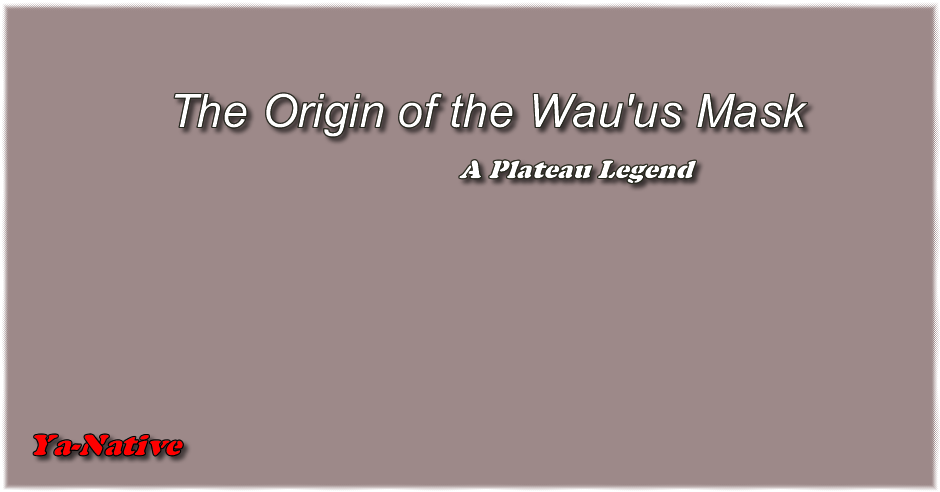
Some people of the Fraser Delta tribes (S'a`tc1nko) lived formerly at a place called Wau'us. Among them was a boy who was troubled with large swellings on the body (komkome'x) and was unable to find a cure. Since there was no relief for him, he expressed a wish to die, and wandered aimlessly about on the mountains to the east of the Hope trail, until he reached the source of a creek. Here he came to a lake, and, wishing to drown himself, he jumped in. He sank until he almost reached the bottom of the lake, where he came in contact with the roof of a house. This was inhabited by water-spirits or water-people (Txaxaa'/ko), who, hearing the thud of the lad striking the roof, sent one of their number out to see what was the matter. He came back, and reported that a stranger was resting on the roof of their house. He was ordered to bring him inside.
As the lad entered, he saw sitting in the doorway a woman holding an infant, and he spat on the latter as he passed. The child -at once became sick with the same disease as himself. The people sent to a neighboring lake for a medicine-man, but after several trials the latter declared he was unable to cure the child. Then some of the old people said, "Ask the stranger to treat the child. He must be a medicine-man, or at least possessed of much power and knowledge; otherwise he could never have come to our dwelling." They asked the lad to doctor the sick infant; but he said, 'I am sick myself, and came here to get cured. If you cure me, I will treat your child." Then they brought medicine of different kinds and anointed his whole body with it, until he became well. When he saw that they had cured him, he spat on the child, and it became well also.
The people were very well pleased because he had cured the child, and they treated him very kindly; but after a time he became tired of staying there, and desired to go home to his own people. So the chief selected four of his people to conduct the lad home. They were Beaver, Mink, Otter, and Loon. After going a considerable distance, they lost their way, and had to return. Some days afterwards they tried it again, Beaver leading the way. Wherever they travelled, the water gave way before them, and stood back, leaving a passage like a tunnel. At last they came out on the earth, and
a small lake formed at the place. Here his friends left him, and returned by the same way they had come. Before departing they told him that on the following day they would send him a blanket or covering.' The chief had also told him this before he left the lake-people's house.
After resting a while, the lad went home, and, seeing his brothers and sisters, said to them, "I am your brother. Don't you see me?' But they could not see him, because he had made himself invisible. After he had talked to them three times, he made himself visible, and they saw him. Then he met his parents, and talked three times to them in like manner. He told them to clean their house, so tnat he might enter. They did so, and spread mats and fresh boughs in the house, and also as a path for him to walk on: then he entered and sat down.
On the next morning he went out to meet the lake-people who were to bring the blanket or present, and the people followed him at some distance behind. He met them not very far from the house.
Wherever they had trod, springs burst out, or pools formed, which may be seen at the present day. They delivered to him their present, which consisted of a mask (sEnamkai'n ). It had wings at the sides, and two bird's beaks in front, and was covered with swan-feathers for hair. He wore this mask, and became a very important man. He used it in dances and at feasts. He carved a figure of it on his house-post and grave-post. It.descended to his children and descendants, who alone were entitled to use it. One of this man's descendants married among the Spuzzum people, and their children used it at dances.
A Thompson Legend